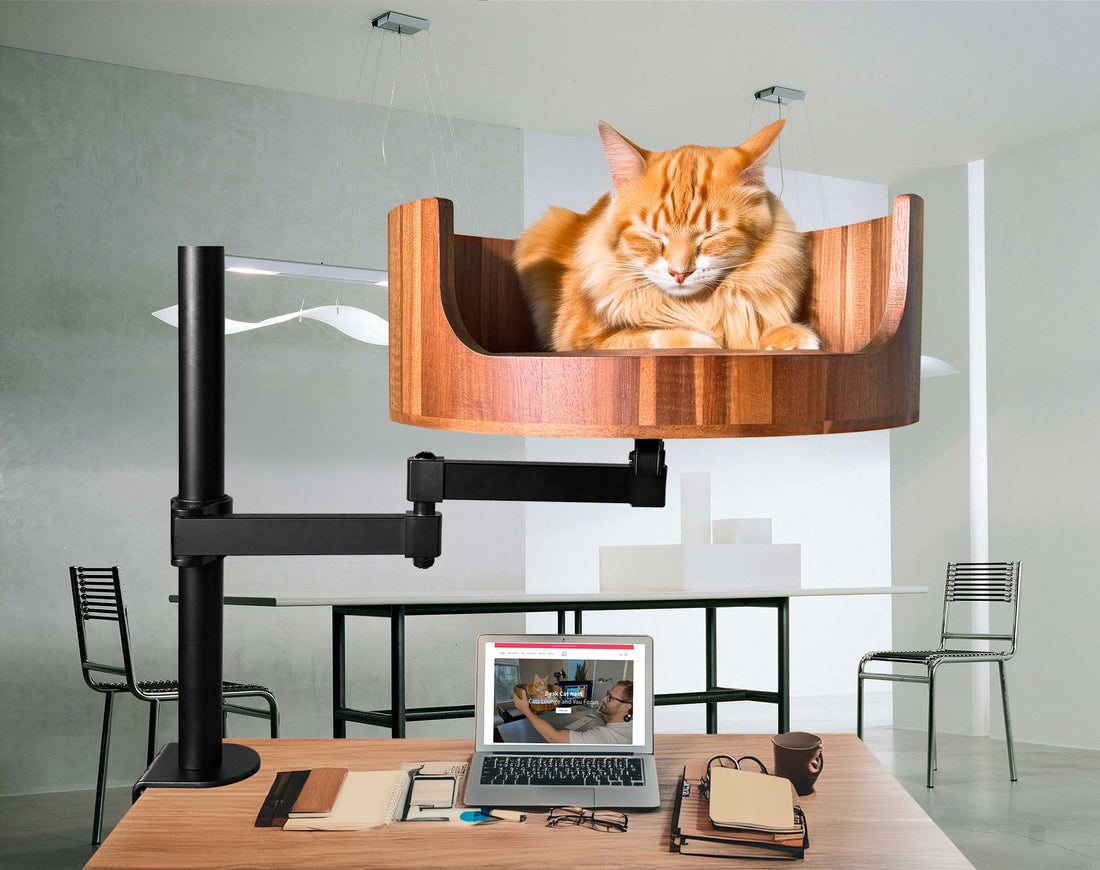
Why Do Cats Twitch: Understanding Feline Behavior
Share
Have you ever noticed your cat twitching while asleep or even while awake? This common behavior in felines can often leave pet owners puzzled. Understanding why cats twitch can provide valuable insights into their behavior and overall well-being. In this article, we will delve into the reasons behind why cats twitch and what it can tell us about their health and happiness.
Desk Cat Nest recently conducted a study on feline behavior, focusing on the phenomenon of cats twitching. Through careful observation and research, our team has discovered various reasons behind this intriguing behavior. From dream-chasing to muscle memory, we will explore the different factors that contribute to cats twitching and what it reveals about their instincts and instincts. By gaining a better understanding of why cats twitch, pet owners can learn to interpret their furry friends' behavior more effectively and create a more enriching environment for their beloved companions.
1. Twitching is a natural behavior in cats and can indicate a range of emotions or physiological responses.
2. Cats may twitch during sleep due to dreaming or as a way to stay alert to potential threats.
3. External stimuli, such as insects or sudden noises, can also trigger twitching in cats.
4. Twitching can be a sign of medical conditions like seizures or neurological issues, so it's important to monitor your cat's behavior.
5. Understanding why your cat twitches can help you better care for their needs and ensure their well-being.
Causes of Cat Twitching
There are several reasons why cats twitch, some of which can be normal feline behavior. Cats may twitch when they are experiencing REM (rapid eye movement) sleep, which is the stage of sleep where dreams occur. Other common causes of cat twitching include excitement or anticipation when hunting or playing, stress or anxiety, and physical discomfort such as itching or pain. In some cases, twitching can also be a symptom of underlying health issues like seizures, epilepsy, or neurological disorders.
Types of Cat Twitching
There are different types of cat twitching that can indicate varying levels of stimulation or discomfort. One common type is the tail twitch, which can be a sign of annoyance or agitation in cats. Ear twitching can indicate sensitivity to sound or irritation in the ears. Muscle twitches or spasms can be a sign of physical discomfort, such as muscle pain or cramping. In some cases, cats may exhibit full-body twitching or shaking, which can be a sign of a more serious health issue that requires veterinary attention.
Managing Cat Twitching
If your cat is twitching frequently or in a way that seems abnormal, it is important to observe their behavior and try to identify any potential triggers. Providing a safe and comfortable environment for your cat, with plenty of opportunities for stimulation, exercise, and rest, can help reduce stress and anxiety that may contribute to twitching. Regular veterinary check-ups can also help identify and manage any underlying health conditions that may be causing twitching in your cat. Consulting with a professional animal behaviorist or veterinarian can provide personalized recommendations for managing and addressing cat twitching behavior.
## Desk Cat Nest FAQ
### Why do cats twitch?
Cats may twitch for a variety of reasons, including dreaming, muscle twitches, or even experiencing a reaction to external stimuli like bugs or sudden noises.
### Is twitching in cats normal?
Yes, twitching in cats is a normal behavior and is usually nothing to be concerned about. It can be caused by muscle twitches, dreaming, or playing.
### When should I be concerned about my cat twitching?
If your cat is twitching excessively or if the twitching is accompanied by other unusual symptoms like lethargy or loss of appetite, it may be a sign of an underlying health issue. In these cases, it is best to consult with a veterinarian.
### How can the Desk Cat Nest help my twitching cat?
The Desk Cat Nest provides a secure and cozy space for your cat to relax and feel comfortable, which can help reduce stress and anxiety that may be contributing to their twitching behavior.
### Will the Desk Cat Nest stop my cat from twitching altogether?
While the Desk Cat Nest can provide a calming environment for your cat, it may not completely eliminate twitching behavior. It is important to monitor your cat's overall health and behavior and consult with a veterinarian if you have concerns.
In conclusion, the Desk Cat Bed is an essential addition to any cat owner's home, especially for addressing the issue of why do cats twitch. This cozy and comfortable bed provides a safe and secure space for cats to relax and destress, reducing the likelihood of twitching and other anxious behaviors. With its durable construction and plush materials, the Desk Cat Bed offers both comfort and support for your feline friend, promoting overall well-being and relaxation. Make the smart choice and invest in a Desk Cat Bed today to keep your cat happy and healthy.



















































